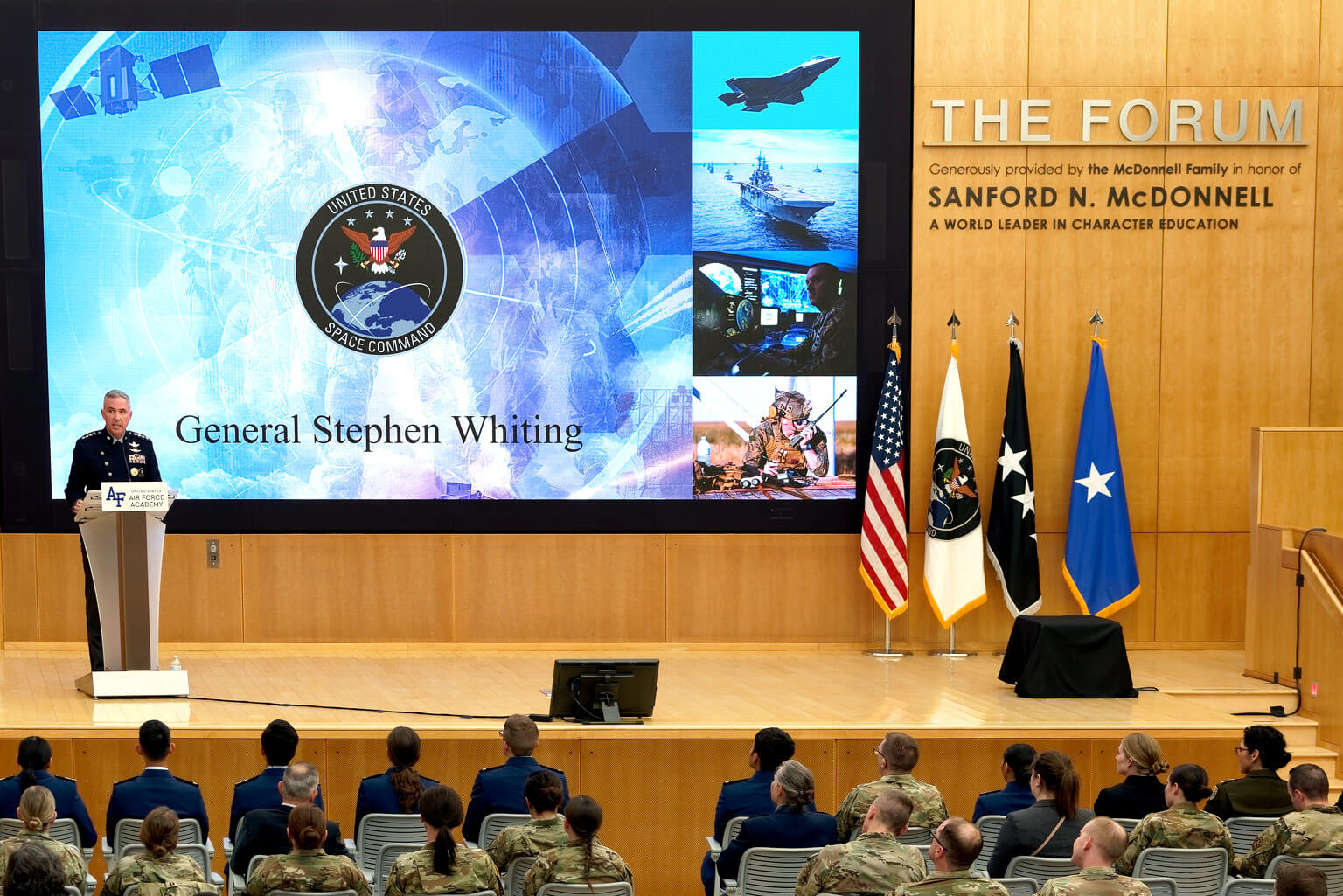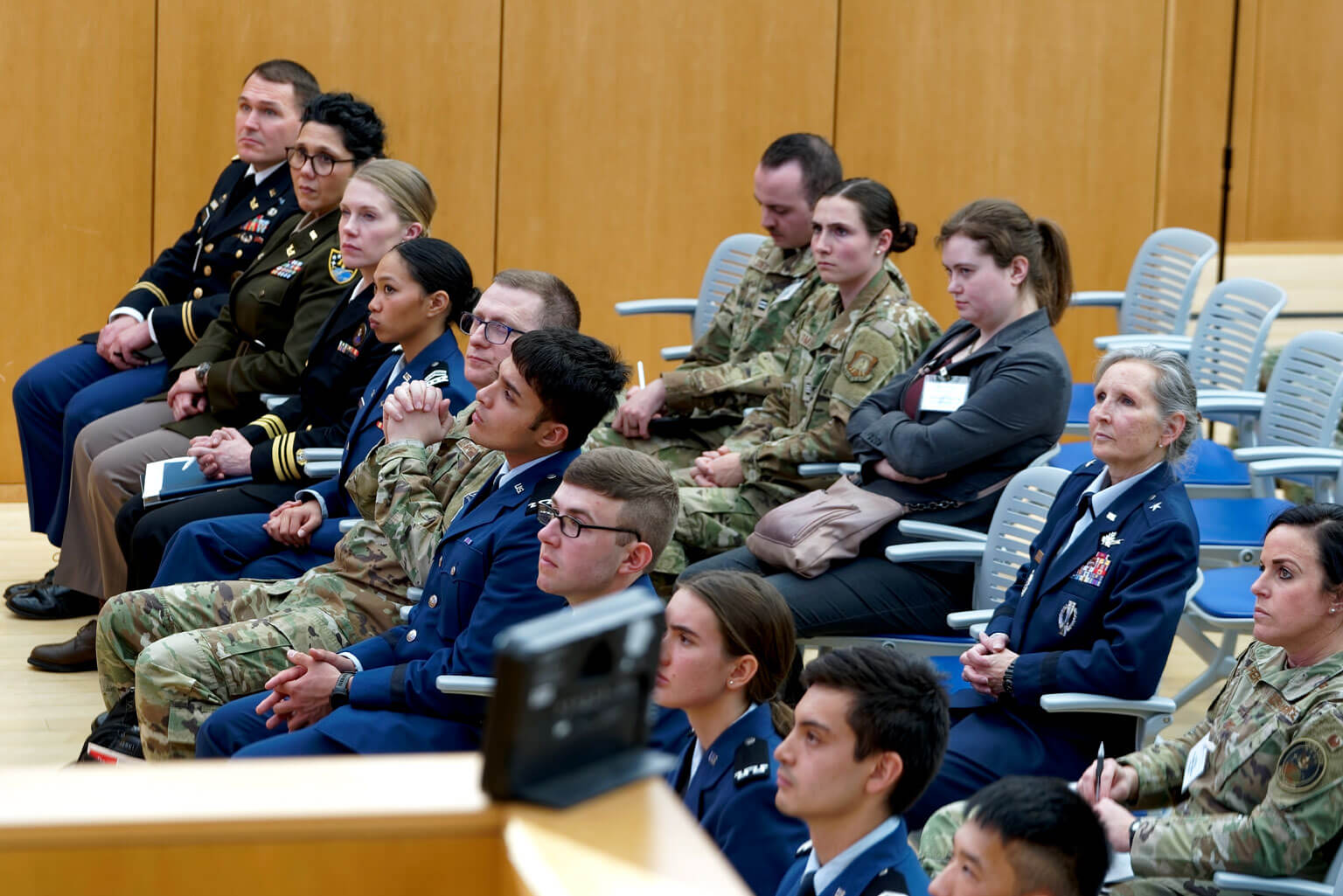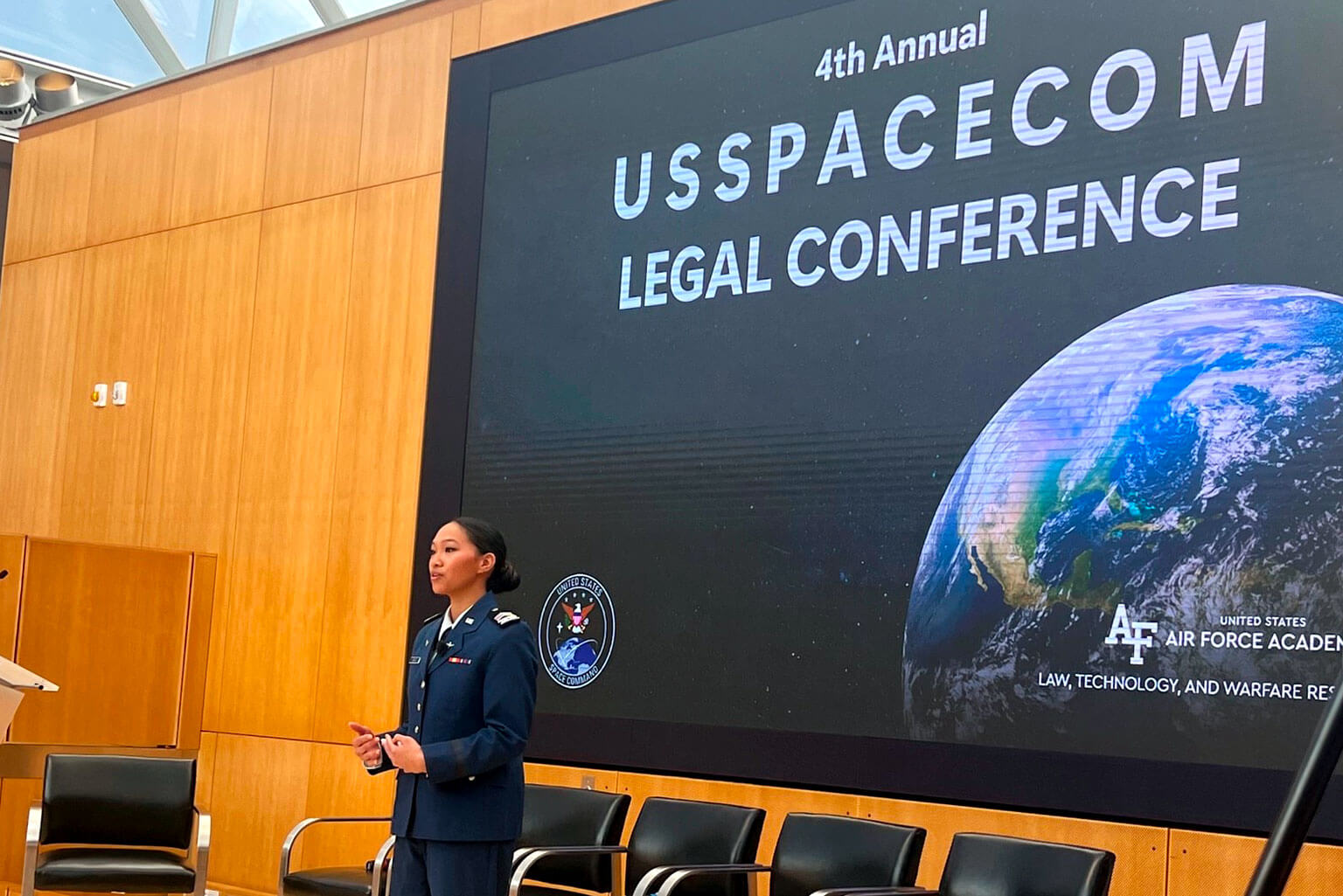Cadets learn, instruct during legal conference

U.S. Space Force Gen. Stephen Whiting, Space Command commander, speaks during the Fourth Annual USSPACECOM Legal Conference March 6, 2024 at Polaris Hall, U.S. Air Force Academy, Colorado. (Courtesy photo)
By Katherine Spessa
U.S. Air Force Academy Strategic Communications
U.S. AIR FORCE ACADEMY, Colo. – The U.S. Air Force Academy hosted the U.S. Space Command’s fourth annual legal conference in Polaris Hall here, allowing cadets to attend and present at the event, which welcomes industry leaders each year.
The conference was organized by USSPACECOM, the Office of the Staff Judge Advocate and the U.S. Air Force Academy’s Law, Technology and Warfare Research Cell. It brought together space law and government practitioners to develop solutions to topics currently facing the domain. This year’s panelists included a broad range of representatives from partner nations, academia, commercial industry, the Departments of State and Defense, and the interagency.
“There is so much nuance and depth in this topic,” said Cadet 2nd Class David Stark, one of the presenters. “These conferences are really tackling some unknown spaces, sort of a legal wasteland and how to handle it, whether through treaties, conventions or international cooperation.”
Keynote speakers and panelists discussed, among other topics: interagency guidelines for space congestion and debris mitigation; how the development of intelligence and cyber operations can inform approaches to space operations law; and the future of normative international law and space governance. Panelists will also discuss the international perspective on planetary defense and national security space strategies and the rise of lawfare.
Prior to each panel, Academy cadets and students from universities throughout the U.S. gave lightning talks on a thoroughly researched topic pertinent to the discussion.

Conference attendees listen to a keynote address during the fourth annual USSPACECOM legal conference March 6, 2024 at Polaris Hall, U.S. Air Force Academy, Colorado. (Courtesy photo)
“These are important people in the field listening to our cadets and were frankly quite interested in what they had to say,” said Maj. Leo Bradford, an Academy assistant law professor who helped organize the event. “You can see that they took it seriously, put a lot of work into it and did their part to make it a success.”
Cadet 2nd Class Genevieve Sabado, a legal studies major, presented on the Foreign Intelligence Surveillance Act, Section 702, which dictates the parameters for acquiring foreign intelligence.
“Section 702 uses the word person rather than the word citizen, which is a distinction in the United States as corporations that are incorporated in the U.S. are granted legal personhood here,” said Sabado. “I was very drawn to the legal impacts that would have on national security and intelligence gathering in space, which is inherently international.”

Cadet 2nd Class Genevieve Sabado gives a lightning talk to space law and government practitioners during the fourth annual USSPACECOM legal conference March 6, 2024 at Polaris Hall, U.S. Air Force Academy, Colorado. (Courtesy photo)
The opportunity to conduct that research and present at such a conference, Sabado says, is unique to the Academy.
“I wouldn’t be able to speak in front of all these incredible people from different countries that are involved in international law and in shaping the future of space law if I weren’t offered this opportunity at the Academy,” she said.